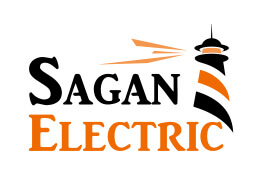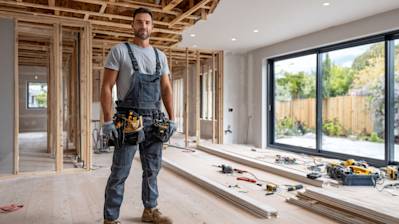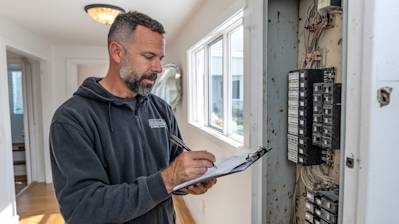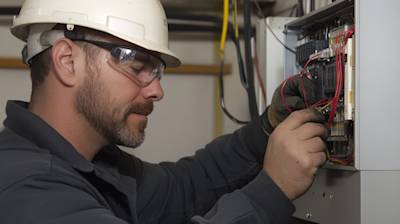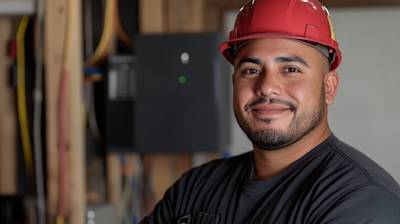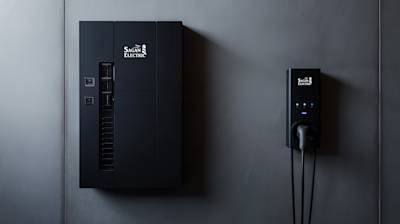If you own a home, there's a good chance you've come across a breaker box. For those who are unfamiliar, breaker boxes, also known as electrical panels, are integral components of any residential or commercial property's electrical system. They ensure that all the rooms, devices, and appliances in your home have the power they need to function properly. This distinctive box plays a significant role in the safety and efficiency of your home's electrical system, acting as a sort of command center for the flow of electricity throughout your property. But what exactly is a breaker box and how does it work? In this article, we'll dive deep into these essential electrical devices.
Understanding Breaker Boxes
Breaker boxes or electrical breaker panels are the central hub of your home's electrical system. They distribute power from the grid into different circuits throughout your house. Each individual circuit is protected by a breaker, which is designed to trip and cut off the electrical current in the event of a power surge or overload.
Key Components of Breaker Boxes
There are two primary components inside a breaker box: the main breaker and individual circuit breakers.
-
The main breaker: This large double-pole circuit breaker controls the electricity supply for the entire box. It can shut off power to the entire home in case of emergencies.
-
Individual circuit breakers: These smaller, single-pole breakers act as safeguards for individual circuits. If there's an overload in a specific circuit, the corresponding circuit breaker trips and interrupts the electrical flow in that circuit.
Types of Breaker Boxes
There are primarily two types of breaker boxes: main breaker panels and main lug panels.
Main Breaker Panels
Main breaker panels include a built-in main breaker which can be used to shut off all power to your house. This main breaker is often capable of handling 100 to 200 amps. Since this breaker box type has a main circuit breaker, it offers an added layer of convenience and safety.
Main Lug Panels
Conversely, a main lug panel doesn't have a main breaker. Instead, these breaker boxes get their power from the meter or an external disconnect. The lack of a main breaker makes these panels more compact and suitable for additions or subpanels.
The Role of Breaker Boxes in Safety
A properly functioning breaker box is key to ensuring electrical safety in your home. Circuit breakers within the box are designed to prevent electrical overloads and short circuits, which could lead to fire hazards. By cutting off power in response to these potential threats, breaker boxes act as guardians of your domestic or commercial electrical system.
Regular Maintenance for Optimal Performance
To keep your breaker box operating effectively, regular maintenance and inspections are crucial. Any irregularities, such as tripping breakers, should be addressed by a qualified electrician who can diagnose and resolve any existing issues. It's also advisable to have your breaker box examined if it's old or if you're adding more electrical appliances to your home.
Investing in High-Quality Breaker Boxes
Selecting the right breaker box for your home or business is crucial. Several factors to consider include your power requirements, the size of your property, and your local building codes. When in doubt, consult with a licensed electrician to ensure you're making the perfect choice to guarantee power safety and efficiency.
Breaker boxes are fundamental elements of any building's electrical system. Understanding their function, types, and importance in ensuring safety can help you keep your property safe, power-efficient, and compliant with local regulations.
Frequently Asked Questions About Breaker Boxes
Why is my breaker box making a buzzing noise?
In some instances, you might hear a buzzing noise coming from your breaker box. This normally happens due to loose connections, damaged circuit breakers, or electrical overload. However, this shouldn't be overlooked. A buzzing sound can indicate a hazard, therefore it's advisable to have a professional electrician inspect the issue to prevent any serious damage.
What does it mean when a breaker box is hot?
It's not normal for your breaker box to be too hot to touch. This could indicate an electrical overload or a faulty breaker. Overheating can lead to severe damage and is a potential fire hazard, so you should immediately seek help from a professional electrician to avoid dangerous situations.
Why won't my circuit breaker reset?
If you've attempted to reset your breaker and it won't respond, that could be due to a few things. Your breaker could be faulty, or there could be a serious issue with your electrical wiring. In both cases, consulting with a professional electrician can help solve the issue.
How often should I replace my breaker box?
Generally, breaker boxes can last for decades without requiring a replacement. However, if you're frequently experiencing problems, such as tripping breakers or overheating, a replacement could be necessary. An electrician can conduct a thorough inspection to determine whether a replacement is the best option.
Can appliances be damaged if the breaker box fails?
Yes, electrical appliances and devices in your home could potentially be damaged if your breaker box fails. This could occur due to power surges or fluctuations that result from issues within the breaker box.
Can I install a breaker box myself?
While it is technically possible to install a breaker box yourself, it's strongly encouraged to hire a professional electrician for the job. This is due to the high-stakes nature of electrical work that could lead to serious safety hazards when done incorrectly.
How do I know if a circuit breaker is faulty?
There are multiple signs to look for when identifying a faulty circuit breaker. This includes constant tripping, physical damage to the breaker (such as burns or corrosion), or multiple devices in your home suddenly losing power.
Why does my breaker box have a burning smell?
A burning smell originating from your breaker box is an immediate cause for concern. It typically indicates a severe electrical issue, potentially with the wiring or breakers themselves. In this situation, you should turn off the affected breakers and contact an electrical expert immediately to attend to the issue.
How many circuit breakers can a breaker box hold?
The number of circuit breakers a breaker box can hold varies based on the make and model, as well as the requirement of your particular home. Most residential breaker boxes will hold between 12 and 24 breakers, but larger models can accommodate even more.
Can a breaker box cause a fire?
Yes, a faulty breaker box can cause a fire. Overheating, electrical overload, or loose connections can all turn your breaker box into a potential fire hazard. As such, regular inspections and immediate attention to any unusual sounds, smells, or behavior is crucial for maintaining safety.
Can I add more circuits to my current breaker box?
Yes, as long as there are available slots in your breaker box, you can add more circuits. However, to ensure safety and adherence to local regulations, this task should always be handled by a professional electrician.
Why is my breaker box sparking?
Seeing sparks fly from your breaker box is a serious problem that should be addressed immediately. Sparks could indicate a faulty breaker, damaged wiring, or a much larger electrical problem. Each of these situations creates a fire hazard and should be rectified by a professional as soon as possible. Remember, breaker boxes are a crucial yet complex element of your home's electrical system. If you ever have concerns, always reach out to a professional for assistance to ensure safety.
Pros of Breaker Boxes
1. Safety and Protection
-
Breaker boxes offer an immediate safety feature by automatically tripping off when there is an electrical overload or short circuit. This prevents potential fires and damages to appliances.
-
They provide the first line of defense against electrical hazards in your home or business setup.
2. Easy to Reset
-
After an electrical fault, breaker boxes can be easily reset to restore the power, unlike fuses that need to be replaced.
-
This feature allows you to resume your activities rapidly, eliminating unnecessary downtime.
3. Clear Indication of Tripped Circuit
-
Most breaker boxes have a clear visual indicator that shows which circuit has tripped. It allows you to identify and correct the fault area.
4. Wide Range of Sizes
-
You can choose from different sizes of breaker boxes depending upon the size and power supply needs of your home or establishment.
Cons of Breaker Boxes
1. Initial Installation Cost
-
The cost of a new breaker box can be quite high, especially if you opt for high-capacity models.
-
Along with the price of the breaker box itself, there are costs associated with installation and configuration by a professional electrician.
2. Maintenance and Replacement
-
Circuit breaker boxes require periodic maintenance than may incur additional costs. Although you can perform some upkeep tasks yourself, others might require a professional electrician.
-
Although they last longer, breaker boxes, particularly the circuit breakers within these boxes, do not last forever and their replacement can also be costly.
3. Potential for Nuisance Tripping
-
Breaker boxes may sometimes have a false trip due to sudden changes in electricity flow, causing an interruption in your work or activities.
4. Difficulty in Finding Replacement Parts
-
Older breaker boxes are often discontinued models, making it quite challenging to find replacement parts.
While the breaker box pros and cons offer leanings towards both sides of the argument, the decision on whether to install or replace a breaker box depends entirely on your specific needs, as well as your budget. A robust understanding of these pros and cons would let you make an informed decision while opting for or against breaker boxes.
Summary
Breaker boxes play an essential role in our homes, serving as the main hub for electrical circuits. They prevent circuits from overload by safely tripping the system when current flows too high. It's essential to properly maintain breaker boxes to ensure our homes are safe and our electrical devices are functioning properly.
Most homeowners don't pay much attention to their breaker boxes until something goes wrong. It's hidden away, usually in a basement or garage, but that doesn't diminish its importance. Breaker boxes are the heart of our home's electrical system, ensuring that power is distributed safely to every corner of the house.
Overall, breaker boxes are the unsung heroes of our homes. Their relevance often goes unnoticed until a power shortage or a circuit malfunction occurs. To ensure your home is safe and your appliances are protected, regular breaker box maintenance and timely repair or replacement is necessary.
About Sagan Electric
Welcome to Sagan Electric, your trusted electric service company based in Sacramento, CA! As devoted electrical experts, we are committed to exceed your expectations with top-tier craftsmanship, flexible scheduling, and outstanding customer service. We're proud to be part of the Sacramento community and we pledge to keep your lights on, appliances running, and conduct your electrical repairs swiftly and accurately. With Sagan Electric, you're not just a client - you're a part of the family.
Tags: breaker boxes, electrical systems, home maintenance,
